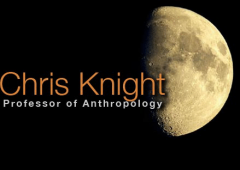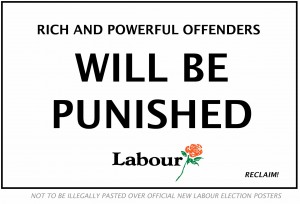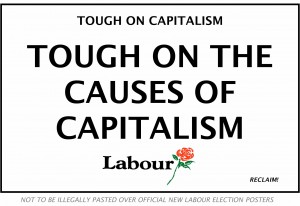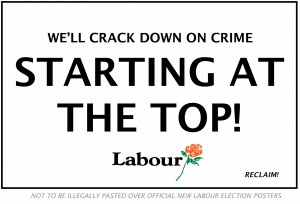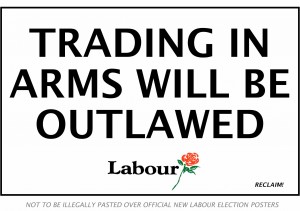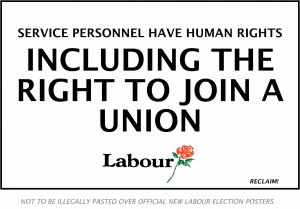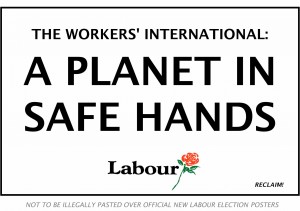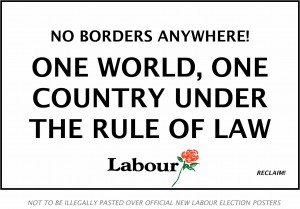Wait for the music to stop! ChrisKnight2011-Pt1
Author: ck
Getting arrested outside Downing Street 18 July 2010
All Power to the Labour Government
I wrote this document in 1969, when I was in my ‘twenties and active in the movement against the Vietnam War. Four years earlier, while a student at Sussex University, I had become a member of the Labour Party, attaching myself in particular to the "Militant" tendency which was influential in Brighton at the time. I supported "Militant" because they seemed to be the only part of the Labour Party who would not make compromises with capitalism in general or Harold Wilson’s collusion with the United States war effort in particular. "Militant" was a Trotskyist organisation of about 100 members, grouped together since 1964 to read the basic works of Marx, Engels, Lenin and Trotsky and apply their lessons to our political work. Continue reading “All Power to the Labour Government”
My politics
Throughout most of our history, humans have lived as egalitarian hunter-gatherers. If human beings prove happiest and healthiest under conditions of freedom and equality, it’s because these were the political conditions under which we evolved. My experience of ‘Reclaim the Streets’ and the Liverpool dockers brought home to me the extent to which broadly ‘hunter-gatherer’ principles of networking and self-organization are being rediscovered by those environmentalists, anarchist and socialists at the forefront of radical political activism today. My appreciation of these connections is perhaps best captured in the following interview, in which I was asked about my involvement with ‘Reclaim the Future’ in the years between 1994 and 1997.
Interview with Chris Knight and Pauline Bradley on 9th March 2002. Video recording by Peter Woodward and transcription by Heather Stephenson. Edited by Alan Woodward. Continue reading “My politics”
Chris Knight (1995). Blood Relations: Menstruation and the origins of culture. New Haven & London: Yale University Press.).
“A most important, novel, well-argued and monumental piece of work.”
J. D. Lewis-Williams, Rock Art Research Unit, University of the Witwatersrand
“This book may be the most important ever written on the evolution of human social organization. It brings together observation and theory from social anthropology, primatology, and paleoanthropology in a manner never before equalled. The author, Chris Knight, who teaches social anthropology at the University of East London, is up to date on all these fields and has achieved an extraordinary synthesis. His critiques of Claude Lévi-Strauss on totemism and myth are a sheer tour de force.”
Alex Walter, Department of Anthropology, Rutgers University
“Blood Relations is an extraordinary work, in which imaginary creatures and magical events are orchestrated on a global scale, from Australia to Amazonia, into a single vision of how humans created humanity….Though Knight does tend to resemble a shaman with a spread-sheet, he is not concocting some syncretic religious brew of Darwinism and tribal initiation rites. He is every bit as materialist as Dennett or Dawkins – ultra-Darwinian, in Stephen Jay Gould’s terms – but unlike them, he has an intuitive understanding of the sacred. The trick here is to retain one’s sense of magic after one stops believing in it. Blood Relations appreciated the importance of sacred ritual, and of sociobiology, the better for being able to stand outside them. Writing under the influence of Primate Visions, Donna Haraway’s feminist interpretation of primatology, Knight felt able to refer to his own narrative as myth, and free to bring his own props to the sociobiology show. ‘If you could have calculating, maximising capitalists operating in human origins narratives, why could you not also have militant trade unionists?’ he asked. ‘If you could have profits and dividends, why not also industrial action, pay bargaining and strikes?’ Culture, he proposed, was the settlement that followed the world’s first strike.”
Marek Kohn, Science correspondent, Independent on Sunday
“The Most Brilliant Anthropological Study Ever Written. The many words used to describe Chris Knight’s ‘Blood Relations’ include, monumental, encyclopedic, brilliant, original, ingenious, and a tour-de-force. It is all of these and more! This work is simply the most brilliant and imaginative book about human cultural development ever written. Its range is astonishing. Its arguments are cogently made with great detail. Its synthesis of primatology, sociobiology, and anthropology are compelling. Where others have depicted women as the victims of a dominant male hierarchy, Knight reveals how the sex roles and behavior of both men and women developed together in a dialectic relationship. Where others have stressed the loss of oestrus and continuous sexual receptivity in the female, Knight spotlights menstruation and its associated marital and other cultural taboos. Where others stress man the hunter and woman the gatherer, Knight envisions paleo-women as evolving an increasing solidarity to shape the structure of both hunting and gathering. Women are not the passive creatures that are so often depicted by the radical feminists who have an interest in portraying women as the victims of dominant males. Females have been active participants in shaping culture, behavior, and human destiny…Somewhere between 40,000 and 100,000 years ago, Knight believes, a massive social, sexual, and cultural explosion occurred and he does an ingenious job of providing us with insight into how this may have happened. A major change in reproductive strategy had to take place before males could take off as hunters and leave their women behind. Women synchronized their ovulatory cycles with one another; the concept of the “sex-strike” is the heart of the book. Blood as a symbol of menstruation provides a key to much of human culture and Knight uses it to explain the inner logic of many of mankind’s myths and taboos. Because the disruptive effects of sex can be enormous, these controls have played an important role in the development of human culture. The riches of this deeply learned book cannot simply be conveyed in a brief review. It is a work to be read over and over and contemplated. The many insights into human culture and the relationships among the sexes will surely provide any open minded person with a new perspective as to why we are the way we are”.
Amazon.com reviewer Dec 25 2000 (Cincinnati, Ohio U.S.A.)
“Chris Knight’s model is one of the rare successful attempts to solve the many apparent contradictions between anthropological universals and what we expect from evolution through natural selection. His great achievement is to put logic in what, otherwise, looks like a vast mess of anecdotal anthropological facts.”
Jean-Louis Dessalles, Télécom ParisTech
“This book was a revelation to me. Having struggled through numerous turgid anthropological works by the likes of Lévi-Strauss, Róheim etc., it was thrilling to read such an ambitious clear-sighted and compelling account of the origins of human culture, together with an excellent critique of much current anthropological thinking. ….a wonderfully stimulating book”.
Mick Hartley, Amazon.com
“A man writing about menstruation as empowering not polluting; a Marxist analysis in which sex solidarity and class analysis assume equal explanatory power; a fully social and revolutionary account of our human cultural origins that privileges women; an explicitly political narrative of science in the first person; an interweaving of anthropology, biology, history of ideas, and philosophy; an attempt not just to interpret the world but to change the world: Blood Relations is all this and more”.
Diane Bell, American Ethnologist
“Ignoring this book is a mistake. It is a very readable, witty, lively treasure-trove of anthropological wisdom and insight….Chris Knight has taken on the task of explicating not only the whys and hows of human cultural evolution, but also vast constellations of cultural behaviour covering Australia, Africa, Europe and all of the Americas.In this endeavour he is extraordinarily cross-disciplinary in his approach, utilizing insights from cultural anthropology, sociology, sociobiology and palaeo- and ethno-archaeology.In short,Knight is a complete anthropologist, one who realizes the value of exploring all corners of his field to synthesize disparate work into a cohesive whole. His deep commitment to such synthesis should give pause to those of us who refuse to look outside our own areas of expertise for support or contradiction of our theories. His Marxist perspective, while of questionable practical value, is metaphorically rich. And his scholarship is impeccable. While many of us rarely bother to read ‘the greats’ of our field any more, Knight delves deep into Durkheim, Frazer and Lévi-Strauss and many others, coming up with long-forgotten insights and providing his readers with an enormously useful review of a century of evolutionary theory and ethnographic data…In fact, as a feminist, I would very much like it if Knight’s story turned out to be true, since it gives so much credit to women’s collective solidarity, strike power and biological and intellectual creativity…. Best of all, it’s a story that’s ‘good to think with’. It made me review in my mind everything I ever learned about evolution and rethink it in a new way.”
R. E. Davis-Floyd, Journal of the Royal Anthropological Institute
“Revolutions in science seldom appear ready made…. But I suspect that the basis of a new synthesis between anthropology and biology may well lie within the pages of this book.”
Robin Dunbar, Times Higher Educational Supplement
“Imagine a time when women lived together, worked together, sang and danced together, and our lives, work rhythms, songs and dance rhythms were all governed by the cycles of the moon. Imagine a time when all our skins were dark, Europeans having newly arrived from Africa. Imagine a time when women had the power and solidarity to make men leave their warm hearth-sides, go out into the howling wastes of Ice Age Europe to hunt giant and ferocious mammoths and then transport their kills proudly back to the women’s camp.This is not a feminist matriarchalist dream. This happened somewhere between 60,000 and 40,000 years ago, according to the latest scientific account of human cultural origins given by male Marxist anthropologist Chris Knight in Blood Relations. The ‘Human Revolution’, as archaeologists call it, sparked an explosion of symbolic culture that was carried from Africa into Europe, Asia and all the way to Australia 40,000 years ago, and later all over the planet.”
Camilla Power, Everywoman
“No, this is not another Man the Hunter origins myth, with man simultaneously inventing technology, culture and the nuclear family, and teaching it all to his dumb wife sitting at home with baby, waiting for the bacon. On the contrary. First it is not about Man or even Woman: it is about women organising in solidarity with one another. Yes, it is about culture: how women’s solidarity was at the core of it. And yes, it is also about the family: how women’s solidarity exploded the ‘natural family’ of most primate societies, in which the females are the sexual possessions of the male or males. Knight argues that the first human societies were communist. For him, as for Friedrich Engels, this means something historically specific (and nothing whatsoever to do with the monstrosity of Stalinism). Communism meant a society in which women – as never before or since – were free. Women collectively said No to rape, and men obeyed. Responsibility for children belonged to the whole community. Women’s rule – matriarchy – in this sense meant freedom for everyone. Language, co-operation and science replaced physical coercion, animal individualism, and the rule of genes.”
Liz Dalton, Sulfur Magazine
“Read this book and be changed. It is another of the great books of our time whose far-reaching influence in modern culture has not even begun to be felt. BLOOD RELATIONS is beautiful.”
Earl Hazell, Amazon.com
“Chris Knight has produced a book of absorbing interest. The author likens himself to the palaeoanthropological storytellers and it is a fascinating tale that he has to tell. His setting is some 40,000-45,000 years ago…Recommended for health sociologists and students, especially those interested in the gender order of society and in the social significance of biological processes. The book is a narrative, best read through from cover to cover, and this is an agreeable and thought-provoking task.”
Agnes Miles, Sociology of Health and Illness
“One of Knight’s chapters is headed ‘The Revolution’…, but his whole book might well have had this in the title for his thesis has revolutionary implications for modern scholarship as well as hypothesising a revolution in the remote past.”
Emily Lyle, School of Scottish Studies, University of Edinburgh
“A refreshing alternative to the plethora of prosaic and sexist variations on the ‘Man-the-Hunter’ theory of the origins of human culture.”
Cris Shore, Dept. of Social Anthropology,Goldsmiths’ College London
“Blood Relations is magnificent. Comprehensive in design, powerfully informed in execution – this book clarifies not only the problems of the past, but posits the need for a new cultural leap if we are to survive the present.”
M.R.A.Chance, Department of Anthropology, University College London
“Chris Knight in Blood Relations has this ‘extraordinary resolve’. His is an immense work of documentation and close argument. For all its obvious risks, the model offers no hypothesis which is not rigorously testable. Not only this, but it appears to solve most of the outstanding conundrums in contemporary anthropology.”
Peter Redgrove, Times Literary Supplement
“Blood Relations points us all in a refreshingly new direction.”
Clive Gamble, Department of Archaeology, University of Southampton
“Encyclopaedic in scope, this is a seminal work that will certainly stand as a classic example of the application of the Marxist anthropological model to an examination of the origin of human culture…”
Choice, American Library Association
“Chris Knight has a political agenda, and he is not going to hide it from us. He is a good Marxist (‘old fashioned’ as some readers are bound to conclude), believing in class struggle, trade-union activism, workers’ solidarity, and most of all in Engels’s version of primitive communism and the early matriarchate….This theory is designed to cock a snook at every premise which sleeps undisturbed in our current assumptions….The result is an exhilaratingly original edifice of astonishing range.”
Caroline Humphrey, London Review of Books
“Blood Relations is an incredible work of scholarship, and in particular of Marxist scholarship – a vindication of scientific socialist theory at a time when Marxism is supposed to be dead. Here we have the actual proof that Marxist theory works. Not by ignoring facts that don’t fit – but by putting the facts first. The facts are sacred. The theory must fit the facts. We’re so used to having paraded before us Marxism and Marxism-Leninism as it was prostituted by the Soviet Union – where if the facts didn’t fit they were ignored – that we’ve forgotten what Marxism really means.Chris’ book is based on the facts. These facts were well-known within a variety of scientific disciplines – sociology, anthropology, archaeology. You look at these facts, and a lot of them seem completely inexplicable. They appear bizarre. Why do women co-ordinate their menstrual cycles? Why do so many religions have taboos onmenstruation? Why do they have taboos on eating bloody meat? And this is not just in one or two societies, but all round the world, in societies which appear to have very little else in common.Now, men were not very interested in these facts. They just seemed to be bizarre things that primitive societies did. Their importance is that they’re the key to understanding how we became human….Chris’ theory may not be 100 per cent correct. But so far, it explains all the known facts. None of the other theories did. And I don’t think it’s too strong to say that in time to come it will be seen as significant perhaps in the way Darwin was seen as significant, in really changing the way we look at what it is to be human.”
Dorothy Macedo, Vice-Chair, Campaign for Labour Party Democracy
“A quite remarkable contribution to our subject.”
Marilyn Strathern, Department of Social Anthropology, University of Manchester
“From the evidence of burials and symbolic objects, rituals and religious beliefs probably go back more than 100,000 years, but could they actually have been central to the origins of modern humans? A British anthropologist, Chris Knight, certainly thinks so, and in a wide-ranging synthesis of data from present-day anthropology, primatology and sociobiology, together with archaeology, he and his collaborators have argued that women collectively produced a social revolution in Africa over 100,000 years ago. The symbolic use of red ochre began as part of a female response to accumulating social and reproductive stresses caused by the increasing demands of pregnancy, infant and child care, and the need for male provisioning. The blood-red pigment was deployed by menstruating and non-menstruating women, speared on their bodies to spread the taboo on menstruation across alliances of female kin. This instituted a “sex-strike”, which could only be broken when the men returned from collaborative hunts with food to share. Female rituals evolved around the sex-strike, male rituals around the hunt (begun under a dark moon, returning at full moon, thus linking menstrual and lunar cyucles and the blood of women and of animals), and tribal rituals of celebration and feasting would follow the return of the successful hunters.”
Chris Stringer, London Natural History Museum
“From apparently modest beginnings, this is the most ambitious project on the origins of culture to have emerged for decades.The effort to establish a collectivist point of departure for the theory of human communication has had to struggle against the individualist assumptions that dominate cognitive science, but this very struggle makes the book original and important”.
Mary Douglas, C.B.E., F.B.A.
“I suspect that it will be a slow burning classic, revived from time to time, but then discarded because it repudiates bourgeois metaphysics.” Keith Hart, Department of Social Anthropology, University of Cambridge
“As women all over the world fight for control over their own sexuality and fertility, Chris Knight in Blood Relations has performed a service. We can now prove that we’re demanding nothing new. We once had collective control over our own bodies; our fight now is to regain it.”
Leonora Lloyd, Secretary, National Abortion Campaign
“Chris Knight is reconstructing a human revolution that occurred many thousands of years ago. Whether his argument is true or not I am not qualified to judge. But what I want to convey here is the excitement – and the quite extraordinary sense of homecoming and comradeship – which this magnificent book has caused me. But also relief, such relief: as if I am at last in the presence of an understanding which allows something hard and knotted and perverse and intrinsically unshareable, to unfold, stretch, breathe. The release of tension as I read page after page of the detailed, passionate and ironic argument was extraordinary, and something for which I still feel great waves of gratitude.”
David Holt, Lecture to The Guild of Pastoral Psychologists
“This book is a revolutionary textbook for socialists and feminists. It turns upside down the reactionary developments in biology and evolutionary theory that dominated the1980s….Communism – the ideas of revolutionary change, of solidarity, of feminism and of a society organised for the benefit of everyone – is not only still the spectre that haunts Europe, but it is the very thing that created us as human beings…”
Keith Veness, Labour Briefing
“How did human language and culture first emerge? The answer has now been found. It points us back to the very place where we all learned our craft. Human solidarity and culture began on the picket line.”
Jim Perry, Secretary, Cannock Chase & Littleton National Union of Mineworkers
“Blood relations is a bold, panoramic and, in my opinion, easily the most persuasive account of the human revolution. Like any great work there are gaps and unfinished lines of thought – doubtless they will stimulate scholars in the years to come. However, Knight has made the decisive breakthrough which anyone who wants to be taken seriously must develop … or decisively disprove.”
Jack Conrad, Weekly Worker
“What we find most remarkable in Knight’s work is precisely this effort to bring together genetic, archaeological, paleontological and anthropological data in a ‘theory of everything’ for human evolution, analogous to the efforts of the theoretical physicists who have given us super-string or quantum loop gravity theory.”
‘Jens’, International Review
“Knight offers us a model of the birth of culture which, born in practices and needs which are firmly rooted in our biological nature, nevertheless takes form in the real will of our ancestors to impose a collective and liberatory solution to a common problem.”
Timothy Mason, University of Paris
My Recent Suspension and Dismissal
I am Chair of the University and College Lecturers Union at my place of work – or was so until my employers at the University of East London prohibited me from setting foot on the campus. What was the background to this surprising management action?
At the request of the UCU both regionally and nationally, I had been invited to convene a response to the G20 London Summit scheduled for April 2nd 2009 at the ExCeL centre a few hundred yards from our campus. My university management at first gave permission, whereupon we assembled an exciting line-up of climate scientists, economists, social scientists, artists, activists and others to speak at our Alternative Summit. When management at the last minute instructed me to cancel everything, I could hardly believe it. Cancel Tony Benn? Cancel Oliver Tickle? Cancel Richard Wilkinson? At this late stage? What were my employers thinking of? Besides, the Summit had been called for and organized by my union, not by UEL management. It was not theirs to cancel.
In the event, I felt unable to obey the instruction. A raft of accompanying instructions – not to speak to my trade union comrades, to any of my long-term friends and colleagues at my own place of work, to any of my students, to anyone who might be a journalist etc. etc. – seemed equally absurd and impossible. Only a university modeling itself on a police state, surely, could expect literal compliance with such draconian restrictions on my personal freedom? My conscience urged me strongly not to collude.
The Alternative Summit was opened by Tony Benn on the afternoon of April 1st with nearly all the invited speakers attending. The passionate lectures and other contributions were delivered as planned, except that the 300 participants were forced to meet outdoors in the central plaza, management having closed off the entire campus. Ironically, the university canteen remained staffed and was offering hot drinks and food – although exclusively to security staff and police. When the 84-year-old Tony Benn arrived (‘If I don’t make it’, he had earlier assured us, ‘it won’t be for lack of trying!’), we couldn’t even offer him a cup of tea.
My presence in my union capacity on my own campus on that April afternoon has since been deemed by my employers an example of ‘gross misconduct’ under Section f) in Appendix B of our Staff Disciplinary Procedures: ‘Serious insubordination and/or refusal, without reasonable cause, to carry out legitimate instruction given by an authorised member of staff’. Likewise, words attributed to me in my Government of the Dead street theatre role – ‘Eat the bankers!’, for example – have been taken out of context and interpreted by my management as literal incitement to violence. Such intentional misrepresentation and disproportionate punitive action would have been inconceivable had Professor Martin Everett remained in his post as UEL’s respected Vice Chancellor. Neither is it conceivable that the former Vice Chancellor would have thought it appropriate to cancel our Alternative G20 Summit – on the contrary, he’d have helped publicize it and celebrate it. Unfortunately, the free market ideologues who have decided to suspend and dismiss me are the very corporate team that on political grounds suspended and dismissed Professor Everett in a secretive operation condemned by the University and College Lecturers’ Union as a corporate take-over.
Although I have been summarily dismissed from employment at UEL, I am pleased to report that the Alternative G20 Summit proved a memorable and inspiring occasion. While I believe UEL’s current management should hold their heads in shame, I am proud of my university community, my passionate and committed students and my trade union colleagues who have been vigorously resisting my victimization. I also remain proud of my own role in defending academic autonomy and freedom of speech and assembly at the University of East London and beyond.
If you oppose UEL management’s recent course of action, please sign this online petition and (even better) add your own comment to the many heartening messages already there.
You may be interested to know that another petition has gathered over 3400 signatures in protest against UEL closing its doors to freedom of speech and assembly on the occasion of the G20 London Summit.
Death and Resurrection of the Labour Party
(I do science; I also do political street theatre. Unlike the science, my theatrical output is not to be interpreted literally or taken too seriously!)
The Government of the Dead presents:
The Death and Astonishing Resurrection of the Labour Party!
A travelling circus in which governments fall, Parliament is sacked and politics exceed the wildest possibilities of art….
http://current.com/items/89920520_government-of-the-dead-hang-a-banker.htm
http://www.guardian.co.uk/world/video/2009/mar/31/g20-protests-chris-knight
* * * * * * * * * * * * * * * * * * * * * *
Launching Mister Mayhem’s ‘Project to Destroy the Labour Party’
“In Knight’s parallel universe, he will become general secretary of the Labour Party, while John McDonnell, Labour MP for Hayes and Harlington, replaces Mr Brown as leader.”
David Cohen,“Meet Mister Mayhem”, London Evening Standard, March 23 2009.
http://www.thisislondon.co.uk/standard/article-23666748-details/Meet+Mister+Mayhem/article.do
* * * * * * * * * * * * * * * * * * * * * *
What’s in a name?
What’s the ideal name for the new party of the working class? You’ve been bombarding us with ideas:
1. The Gordon Brown Nightmare Labour Party
2. The Walking Dead Zombie Labour Party
3. The Astonishingly Resurrected Labour Party
4. The Radioactive Mutant Labour Party
5. The Monster Raving Loony Labour Party
6. The Street-Fighting Direct Action Labour Party
7. The ‘Bash-the-Rich’ Anarchist Labour Party
In the end, however, we decided to call ourselves, very simply,
“THE Labour Party”
Here’s why:
SHORT VERSION: The best way to destroy matter is to force it into contact with anti-matter.
LONGER VERSION:
1. ‘New Labour’ is currently impersonating our party. We want to seize back the name, preventing our enemies from using it any more. By identifying ourselves as ‘The Labour Party’ and printing membership cards, we’ll force ‘New Labour’ to react. Will they take out a High Court injunction against us? However they respond, it will trigger a public contest between ourselves and ‘New Labour’ as to who has the right to campaign and recruit members under this name.
2. John McDonnell’s ‘Labour Representation Committee’ already exists. This must form the core of any resurrected Labour Party with trade union affiliates capable of displacing ‘New Labour’. Although no decisions have as yet been made, the LRC can be expected to re-name itself as the Labour Party once it splits from ‘New Labour’, as seems likely soon.
3. ‘The Labour Party’ was the name printed on every ballot when we won the May 1st 1997 General Election and subsequent elections. ‘New Labour’ dared not print its name on any ballot paper in any election: Blair and his coterie knew they would lose if they did. We won the vote, but they stole the power. It’s time we seized back that power.
* * * * * * * * * * * * * * * * * * * * * *
While our party is nothing if it’s not an all-night mayhem party – the party to end all parties – our more serious political friends have been demanding to read the small print. At the risk of sounding boring, here’s what’s been worked out so far.
SERIOUS STUFF. LONGEST AND MOST TURGID VERSION:
1. THE Labour Party is the PARTY OF LABOUR. ‘Labour’ is meant in the dictionary sense, as in ‘labour is the source of all value’. Our job is secure political representation for our class. We oppose capitalism and will be replacing it with freedom and socialism, guaranteeing a home, a job and a future for all.
2. THE Labour Party is a broad church. But not so broad as to include free-market ideologues, benefit-cheat, tax-dodging MPs, war criminals, corporate and financial criminals or fascists. We’ve nothing in common with ‘New Labour’, an entryist organization of Thatcherites who for too long have been impersonating our party. Their ‘Labour Party’ is now thankfully dead. Surviving remnants may cling to the hope that it can somehow be ‘reclaimed’. We say: Repudiate the corpse! Sever all links with it! Fight with us to bring LABOUR to POWER!
3. The Party of Labour is not wedded to any specific ideology. As an umbrella uniting multiple ideological strands, we view ourselves as a direct action working class Parliament. The Labour Party welcomes affiliations from all sections of the trade union, co-operative, green, socialist, communist, anarchist and anticapitalist movements.
4. In the past, Labour has been an electoral party. Yes, we’ve shouted at anarchists, expelled socialists, barred communists. Yes, we’ve believed in the British parliamentary system. Yes, we’ve spent ordinary workers’ trade union subscriptions to sponsor career politicians eager to become Councillors and MPs. Yes, we’ve repeatedly won victories in elections.
5. But why keep fighting elections if the system keeps denying us power? Why sponsor people in Parliament if they switch sides once in office for their own private gain?
Beyond electoral politics lies the struggle for real power in the workplace, in the streets, in the media and in society as a whole. Having gained legitimacy on the electoral plane, our task now is to translate office into power. This means mobilizing our extra-parliamentary strength and overcoming the resistance of the rich.
6. Are we advocating a proletarian dictatorship? We want freedom, not dictatorship. But the rich have enjoyed their dictatorship for too long. They’ve fixed things to ensure that regardless of how you vote, they’ll still be in power. The time to turn the tables on them is now. How can you have democracy without dictating back to the dictators? Democracy means stopping politicians from accepting bribes. It means deploying the full force of the law. Instead of one law for the rich and another for the poor, let’s apply the same law to all. Let’s have a crackdown on crime – starting at the top. In a free and democratic society, no-one is above the law.
7. THE Labour Party under present circumstances has no special interest in holding parliamentary elections. Before yet another election, why not act on the mandate we already have? It was not ‘New Labour’ whose name was printed on every ballot when we defeated the Tories on May 1, 1997. On that date and in each subsequent election, the victorious party was ours. The people voted Labour but the capitalists stole the power. Let’s take it back.
Academic Media Activities
Interview for RTVE (Spain) on the origins of culture (February 2007).
Interview for Norwegian State Radio on Language Evolution (April 1998)
Interview for Danish radio programme on Language Evolution (April 1998)
Academic consultant for BBC TV’s ‘ Stonehenge ‘ programme (January 1998)
Academic consultant to Lara Owen (independent film producer), Her Blood is Gold (April 1996).
Academic consultant to BBC, The Seven Ages of Life (March 1996).
Interview for Carlton Television’s ‘Shift’ programme (February 1996).
Interview for Greater London Radio, Magic, Myth and Folklore (January 1996).
Academic consultant to BBC2 Science Features (1994/5).
Activist media links
Video Links
Feb 24: Mardi Gras
Archive: Government of the Dead – Hang The Bankers from Jason N. Parkinson/reportdigital on Vimeo.
Interviews & Articles
June 18: The Slow Death of Gordon Brown & Astonishing Resurrection of the Labour Party!
June 1: Arrest the Returning MPs, Houses of Parliament
Government of the Dead Picket Parliament
Government of the Dead calls for citizens arrest of MPs
May 23: Sack Parliament!
Sack Parliament!: Guy Fawkes outside Houses of Parliament
United Campaign Against Police Violence: Scotland Yard Kettle
May 1: May Day Merriment, Bank of England
April 11: Justice for Ian Tomlinson
April 1: G20 Meltdown, Bank of England
The G20 protests: Global Economic Meltdown
Death of the Black Horse of the Apocalypse
Demotix. Government of the Dead picket Parliament. (June 2009)
Press TV, Canon. Chris Knight debates with Vice President of the Police Federation of England and Wales, Simon Reed (May 2009)
Times Higher Education. Anarchist scholar sued over v-c web disclosure (April 2009)
Times Higher Education. ‘Mr Mayhem’ lifts lid on UEL charges (April 2009)
The Guardian. G20: The revolution will be taught (April 2009)
BBC News. G20 protest professor quizzed (March 2009)
BBC News. G20 protest professor suspended (March 2009)
CNN. Chris Knight, G20 Meltdown (March 2009)
Evening Standard. Meet Mister Mayhem (March 2009)
Evening Standard. Professor Chris Knight renews threats against G20 police (March 2009)
Open Anthropology. Anthropologist Under Attack: University of East London Punishes Chris Knight Over His Public Speech (March 2009)
The Guardian. G20 protests: The laughing Professor (March 2009)
The Guardian. Professor suspended over claims he incited G20 violence (March 2009)
The Guardian. Alternative G20 summit cancelled (March 2009)
The Guardian. G20: The alternative summit will go ahead (March 2009)
The Guardian. Academic questions (March 2009)
Telegraph. Academics and ex-model lead demonstration against G20 summit (March 2009)
Telegraph. G20 protest leaders: the professor, the page 3 girl and the people-watchers (March 2009)
Telegraph. G20 – Protesting Professor Chris Knight (March 2009)
Telegraph. G20 Summit: university professor suspended over bankers ‘hanging from lampposts’ comment (March 2009)
Times Online. G20 protesters take fiery rhetoric and bunting to ‘big tent City’ (March 2009)
Times Online. Anarchist professor Chris Knight suspended after G20 ‘threat’ (March 2009)
New Labour turned upside down!
Download the New Labour turned upside down posters here.
